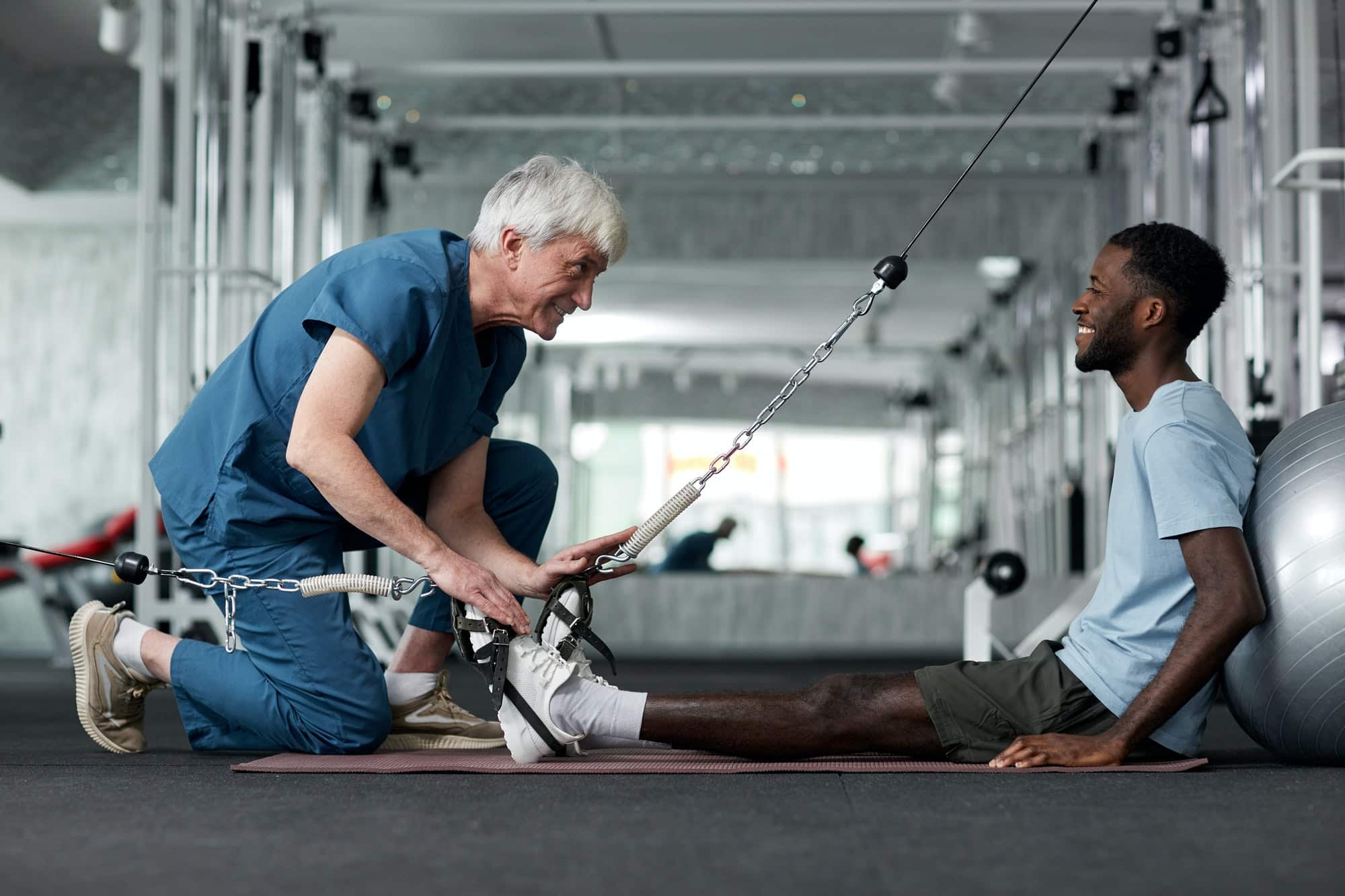What Are the Key Components of Psychological Rehabilitation After Sports Injuries?

A sports injury can have a profound impact on an athlete’s career. Beyond the immediate physical pain and recovery, athletes often face a series of mental and emotional challenges. These can vary from fear of re-injury, anxiety, depression, to a loss of identity. As you face this disruption, it is essential to understand the psychological rehabilitation alongside physical recovery, as this can significantly influence your return to the sport. Today, we’re going to delve into the key components of psychological rehabilitation after sports injuries and the role they play in an athlete’s recovery process.
The Role of Psychological Rehabilitation in Health Recovery for Injured Athletes
Psychological rehabilitation plays a significant role in an athlete’s recovery. It involves strategies and interventions designed to manage emotional distress and enhance psychological well-being. While it’s common to give much attention to the physical aspects of recovery, the psychological aspect is equally important and can often determine the pace and success of the healing process.
Lire également : What’s the Impact of High-Intensity Functional Training on Athletic Performance?
In a study reported by Google Scholar, psychological factors have been found to affect the injury recovery process significantly. Athletes who received psychological support during their recovery period reported lower levels of stress and anxiety, improved confidence levels, and a faster return to their sport.
Coping Mechanisms and Psychosocial Support
One of the key aspects of psychological rehabilitation is learning effective coping mechanisms. Coping mechanisms are strategies that individuals use to manage stress and adverse situations. In the context of sports injuries, these can enable injured athletes to deal with the mental and emotional impact of their injury effectively.
A découvrir également : How Can Virtual Team Building Activities Enhance Cohesion in Remote Sports Teams?
Psychosocial support is another crucial factor in psychological rehabilitation. This involves the use of social relationships and interactions to provide emotional and practical help. Athletes can benefit from encouragement and reassurance from coaches, peers, family members, and healthcare professionals to help them navigate through their recovery process.
Mindfulness and Stress Management Strategies
Mindfulness and stress management strategies are integral components of psychological rehabilitation. Mindfulness involves becoming more aware of your current state, thoughts, and feelings without judgment. By being mindful, athletes can manage their thoughts and emotions more effectively, reducing stress and anxiety levels.
Stress management strategies, on the other hand, are techniques used to handle and reduce stress. These could include deep breathing exercises, progressive muscle relaxation, and guided imagery. These strategies can help athletes manage the psychological distress associated with injury, promoting mental well-being and accelerating the physical recovery process.
The Role of Mental Skills Training
Mental skills training is an essential part of psychological rehabilitation. These skills include self-confidence building, goal setting, visualization, and positive self-talk. These techniques help athletes to regain the mental toughness needed to return to their sport and reduce the risk of future injuries.
For instance, self-confidence building involves strategies to re-establish belief in one’s abilities. Visualization, also known as mental imagery, entails visualizing successful performance scenarios, helping the athlete regain confidence and control over their recovery. Goal setting allows for measurable progress, which can be an effective motivator during the recovery process.
The Importance of Psychological Readiness to Return to Sport
The final, yet crucial component of psychological rehabilitation is ensuring an athlete’s readiness to return to the sport. This refers to their mental preparedness and confidence in their ability to go back to their pre-injury level of performance.
Fear of re-injury is a common concern among athletes. Therefore, psychological readiness involves overcoming this fear and other negative emotions related to the injury. An athlete deemed psychologically ready to return to sport is more likely to have a smooth transition back into regular training and competition.
In conclusion, psychological rehabilitation is a multifaceted process that involves more than just physical healing. It addresses the mental and emotional wellbeing of athletes, helping them to recover fully from sports injuries. By understanding these key components, you can better manage your recovery process and return to your sport with confidence and resilience.
The Significance of Social Support in Athlete’s Recovery
Social support is a crucial component of psychological rehabilitation. It provides a healing environment for injured athletes, allowing them to share their experiences, fears, and concerns in a supportive and understanding atmosphere. The impact of social support on mental health is documented in numerous studies, with findings on Google Scholar and PubMed highlighting its role in reducing stress, anxiety, and depression.
Social support can come from various sources, including coaches, teammates, family, friends, and healthcare professionals. Each source plays a specific and valuable role. For instance, coaches can provide technical and strategic advice during the rehabilitation process, while teammates can offer camaraderie and a sense of belonging. Family and friends offer emotional support, and healthcare professionals provide medical advice and treatment.
Moreover, social support provides a platform for injured athletes to express their feelings and emotions openly and honestly. This process can help athletes to better understand their injury, accept it, and take proactive steps towards recovery. It also helps to foster resilience, a crucial asset in overcoming sports injuries and returning to play.
Psychological Rehabilitation Techniques: A focus on Cognitive Appraisals and Mental Health
Cognitive appraisals are subjective interpretations of a situation that can significantly influence how an athlete reacts to sports injury. It involves the way athletes view their injury and recovery process. It is a critical component of psychological rehabilitation, and it can significantly affect an athlete’s mental health and the pace of their recovery.
For instance, an athlete who views their injury as a catastrophe may experience higher levels of stress, anxiety, and depression. Conversely, an athlete who sees the injury as a temporary setback may exhibit a more proactive and positive approach towards their recovery.
Healthcare professionals can use cognitive appraisals to assess an athlete’s mental state and tailor a personalized psychological rehabilitation plan. This plan may include interventions like cognitive-behavioral therapy, which aims to challenge and change unhelpful cognitive distortions and behaviors, improve emotional regulation, and develop personal coping strategies.
Furthermore, mental health professionals can introduce techniques like mindfulness, deep breathing exercises, and guided imagery to help athletes manage stress and anxiety associated with their injury. They can also teach them positive self-talk and visualization techniques to boost their confidence and motivation during the rehabilitation process.
Conclusion
In the world of sports medicine, the physical aspect of sports injury recovery has long been a primary focus. However, it’s increasingly clear that psychological rehabilitation is just as crucial in the injury rehabilitation process. From understanding the role of cognitive appraisals to leveraging social support, these aspects of psychological rehabilitation help athletes to navigate the various mental and emotional challenges that come with sports injuries.
Moreover, these strategies empower athletes to regain their confidence, resilience, and mental toughness – crucial elements for a successful return to sport. As such, coaches, healthcare practitioners, and athletes themselves should prioritize these components of the recovery process to ensure a holistic approach towards recovery from sports injuries. After all, a healthy athlete is not just physically fit but mentally and emotionally strong.
